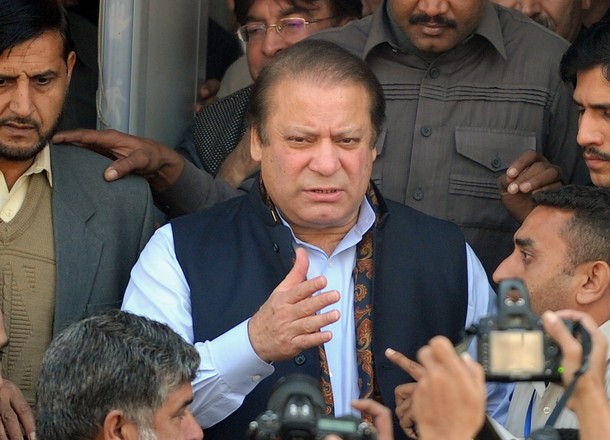The question ‘where’s the beef?’ has an almost iconic place in American culture.
Invented in the 1980s over a marketing war between competing fast food chains, one chain boasted that its new super hamburger was filled with all manner of delights ignoring the beef content. A rival struck back by asking “where’s the beef”, demolishing the competition.
In 1984, the question became part of American political lore. Former Vice President Walter Mondale running for the Democratic presidential nomination torpedoed the broad policies advocated by his chief rival former Senator Gary Hart using the refrain ‘where’s the beef?’ The question helped sink Mr Hart.
Regarding the so-called Memogate affair, Pakistanis should be asking: where’s the beef? For those Pakistanis who may have been vacationing in the North or South Pole, Memogate refers to an unsigned document delivered last May to then Chairman of the US Joint Chiefs Admiral Mike Mullen that called for American help to restrain the Pakistan military thought to be on the verge of a coup, in exchange for increased civilian control of the army and the Inter-Services Intelligence (ISI) and greater Pakistani cooperation in tracking down the Taliban and al Qaeda operatives.
The memo was forwarded by a Pakistani-American businessman who later leaked that the instigator was indeed the Pakistani ambassador to the US, Husain Haqqani. Ambassador Haqqani vehemently denied the allegation, returned home to clear his name and reputation and resigned in the process.
In full disclosure, I have known the ambassador well before he assumed that position and greatly admire what he did in that capacity for Pakistan. I also knew Mansoor Ijaz slightly who briefly served with me on a Defence Department advisory board and was the person who delivered the memo to Admiral Mullen through former National Security Advisor General Jim Jones.
Citing Article 184(3) of the constitution, opposition leader Nawaz Sharif petitioned the Supreme Court to investigate the memo for purely political reasons to embarrass and possibly topple the government. As prime minister, Nawaz imprisoned and tortured Haqqani. The court empanelled a three-judge commission to continue the probe giving it four weeks to complete its findings. No charges were filed and no Pakistani laws seem to have been broken. Meanwhile, Mr Haqqani has been prevented from leaving the country and is under protective custody in the prime minister’s residence given the death threats made against him.
The paternity of the memo rests in a telephone conversation Ijaz says took place with Haqqani who allegedly proposed the arrangement. Yet, there is no confirming evidence. Haqqani has denied the charge in the strongest terms. Army chief General A P Kayani has noted that regarding the memo, “reasonable doubt” of authorship exists. Hence, the issue of perjury is present although what the court could do if Ijaz was proven wrong and did not fall under Pakistani jurisdiction is far from clear.
Interestingly, US law may have been broken. It does not appear that Mr Ijaz filed under the Foreign Agent Registration Act (FARA). FARA requires anyone representing a foreign government trying to influence US policy must do so irrespective of compensation. The law is ambiguous. However, a Kashmiri-American was sent to jail for several years for its violation receiving in excess of a million dollars from the ISI to influence US views on Kashmir.
Several articles have underscored the absence of a constitutional or legal case against Haqqani and the patently political aim of crippling the government. No doubt the army along with many Pakistanis is very dissatisfied with the current government and would welcome a change. But change must be through democratic means.
At issue here, ultimately, is Pakistan’s future as a democracy. Several respected Pakistanis who held a number of the government’s highest offices reinforce this telling point. While in their view the government has not improved the nation’s lot, only the ballot box and not extra-juridical action by the court should produce change. Using the courts to remove the government could lead to instability or worse and derail the path to democracy.
Given his remarkable survival skills, President Asif Zardari is likely to weather this crisis. But suppose the PPP were forced from office extra-legally. No ruling coalition could emerge. Pakistan in essence would become unstable or even ungovernable. Internal strains and tensions for independence in Balochistan and autonomy for parts of Punjab would build and add to the uncertainty and instability. This is speculation. But it is not implausible.
The fact is that there is no legal case against Mr Haqqani. This affair is tragic political theatre that, if left to fester, challenges the very democracy Pakistan aspires to maintain. Both the apex court and the court of inquiry must understand the gravity of the situation and follow due process and the rule of law. Where’s the beef? It could be the undermining of Pakistan’s democracy!
Harlan Ullman is senior advisor at the Atlantic Council, and chairman of the Killowen Group that advises leaders of government and business. This article was published in Daily Times.
Image: nsharif.jpg
